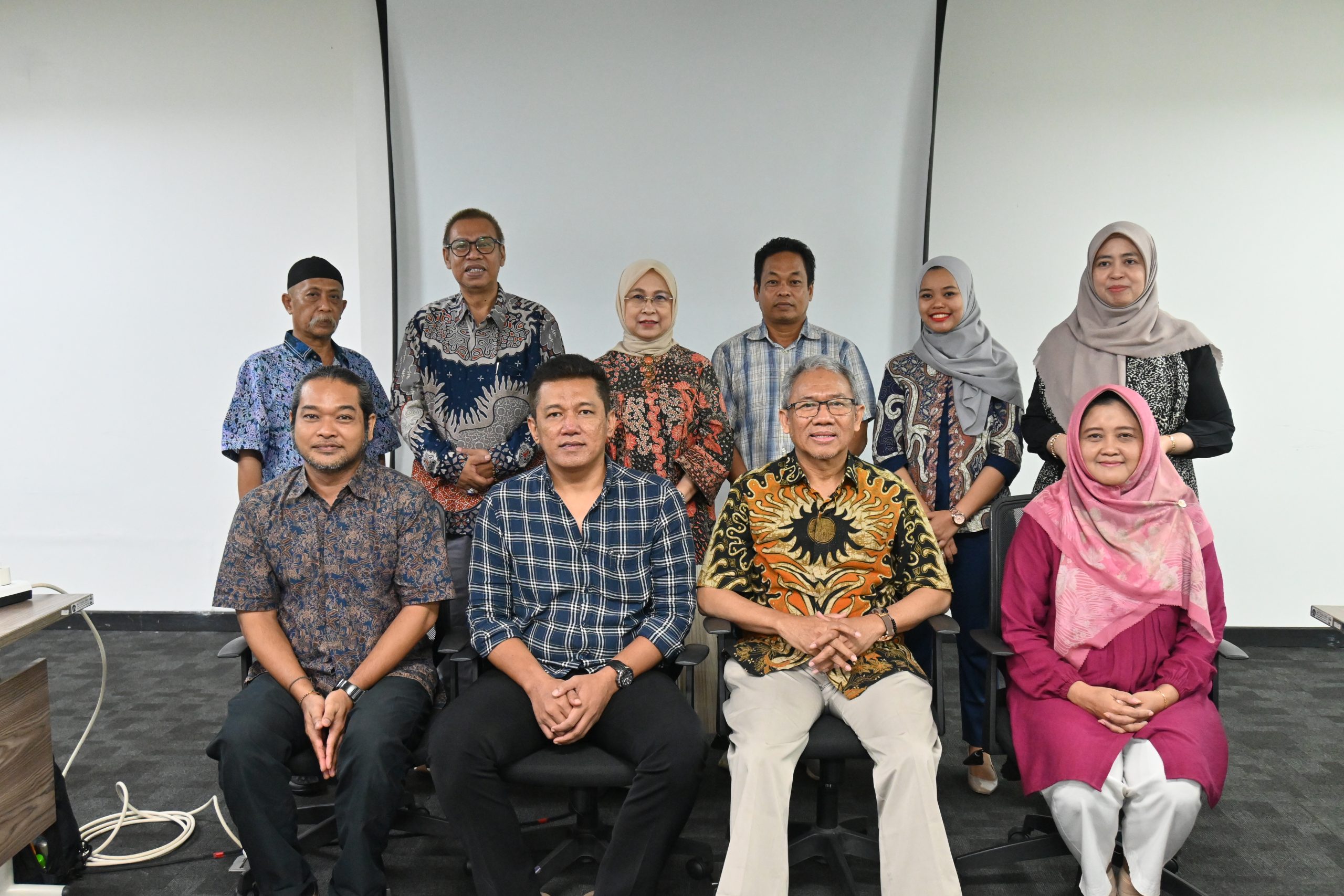On Thursday, April 24, 2025, the Faculty of Public Health (FPH) Universitas Indonesia (UI) welcomed a visit from the Anugerah Bumi Hijau Producers Cooperative (Koprabuh) at Building A, Health Sciences Cluster, Universitas Indonesia (RIK UI). This meeting marked the beginning of a potential collaboration between an academic institution and a national producers cooperative to strengthen nutritional education aspects in village-based programs—particularly as part of the Free Nutritious Meal (MBG) initiative currently being pioneered by Koprabuh in East Java.
The meeting was attended by the Dean of FPH UI, Prof. Dr. Mondastri Korib Sudaryo, M.S., D.Sc.; Vice Dean for Education, Research, and Student Affairs, Dr. Ir. Asih Setiarini, M.Sc.; and Prof. Indri Hapsari Susilowati, S.K.M., M.K.K.K., Ph.D., as Manager of Cooperation, Alumni Relations, and Ventures at FPH UI. Also present were experts in public nutrition and health policy, including Prof. Dr. Ahmad Syafiq, S.K.M., M.Sc.; Prof. Dr. dr. Sandra Fikawati, M.P.H.; and Dr. Fathimah Sidiq, M.Res., Ph.D. The discussion was intensive and collaborative, generating various strategic ideas and suggestions from both parties.
In her opening remarks, Prof. Mondastri emphasized the importance of expert guidance in implementing programs directly related to fulfilling community nutritional needs. “The success of the Free Nutritious Meal (MBG) Program is not only determined by food distribution but also by the quality and nutritional balance tailored to the needs of the target groups,” she stated. Therefore, the involvement of academics with expertise in nutrition is essential to ensure that interventions bring positive impact to the community’s nutritional status. “FPH UI, as an academic institution, is willing to contribute in scholarly areas such as research or studies, as long as it aligns with prevailing regulations,” she added.
Koprabuh is a cross-provincial primary cooperative established in 2006 and officially legalized on November 4, 2015. It was founded by land-owning farmers committed to environmental sustainability, renewable energy, and food security. Koprabuh envisions contributing to community-based national development. “Inspired by global agreements like the Kyoto Protocol and Paris Agreement, Koprabuh positions itself as a private entity actively engaged in the Clean Development Mechanism (CDM), managing non-forest land using environmentally friendly approaches focused on farmer welfare and poverty alleviation,” explained Faizal, a representative from Koprabuh.
Aligned with this vision, Koprabuh developed the Koprabuh Green Fund program—an integrated initiative that includes mangrove restoration, support for government-backed free nutritious meal programs, food sovereignty strengthening, and the development of community-based independent villages. The program serves as a tangible contribution to climate change mitigation and supports national sustainable development goals. While the pilot project is centered in East Java, the program’s vision extends to a national scale.
Prof. Ahmad Syafiq recognized the strong synergy potential between Koprabuh and FPH UI. “In principle, we agree to move forward together. What Koprabuh is doing is highly relevant to today’s changing world, especially regarding carbon trading. This is a strategic moment we must seize for a better Indonesia,” he said. He also stressed the importance of preparing structured follow-up meetings to discuss potential academic outputs such as workshops, seminars, or joint research.
Meanwhile, Prof. Sandra Fikawati expressed her enthusiasm for the ambitious initiative presented by Koprabuh. However, she also highlighted the importance of program sustainability. “It’s a pleasure to have this discussion with Koprabuh. This is a large-scale initiative. Our main concern is ensuring the sustainability of the MBG program, which faces major challenges from funding, kitchen management, to food supply logistics. Nutritious meals are essential to produce quality human resources,” she asserted. Adding a nutrition perspective, Dr. Fathimah emphasized that the MBG program should not only focus on food availability but also the nutritional value of the meals. “Through a planned seminar, FPH UI will also address the nutrition component—so the program focuses not only on food distribution but also on its content to ensure a positive impact on the community’s nutritional status,” she explained.
Prof. Asih Setiarini also highlighted the importance of academic involvement in community-level implementation research to ensure the program’s success.
On behalf of Koprabuh, Sumanto expressed hope that FPH UI could assist in formulating a nutrition-based intervention approach applicable to rural areas. “We seek support from FPH UI on how nutrition issues can be introduced in villages, because currently there are no specific regulations related to nutrition. In our region, for example, moringa leaves are highly beneficial for breastfeeding mothers, but the local management has not yet been maximized,” said Sumanto.
As a follow-up to the discussion, both parties agreed to take the first steps toward collaboration through academic activities such as seminars or panel discussions. These events will cover strategic aspects of food sustainability, including funding, monitoring and evaluation systems, and the role of local nutrition-based interventions relevant to rural community characteristics. Through synergy between academic institutions and grassroots actors like Koprabuh, concrete solutions are expected to emerge to foster a healthier, empowered, and sustainable Indonesian society.
The meeting was also attended by other Koprabuh representatives, including Rachmat Saleh, Head of Koprabuh East Java; Kyai Ramang, Head of Koprabuh Sumenep Regency; Kresna Bayu, Head of Koprabuh Batu Putih Subdistrict, Sumenep; and Faizal, in charge of program monitoring and evaluation. (DFD)

